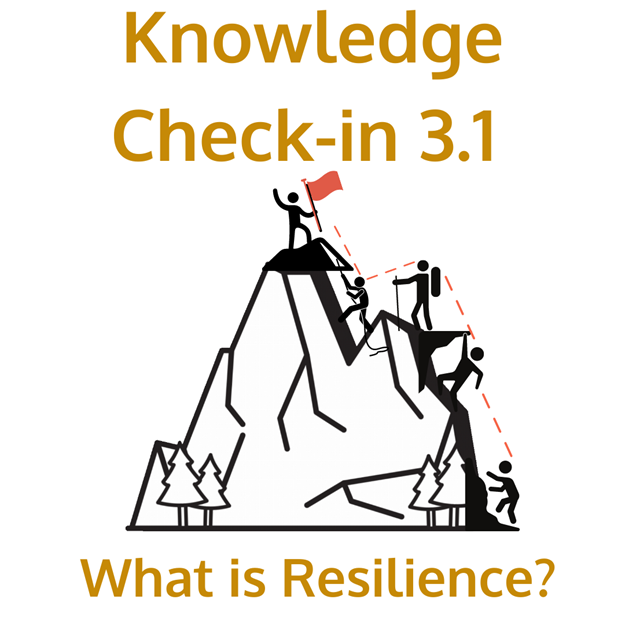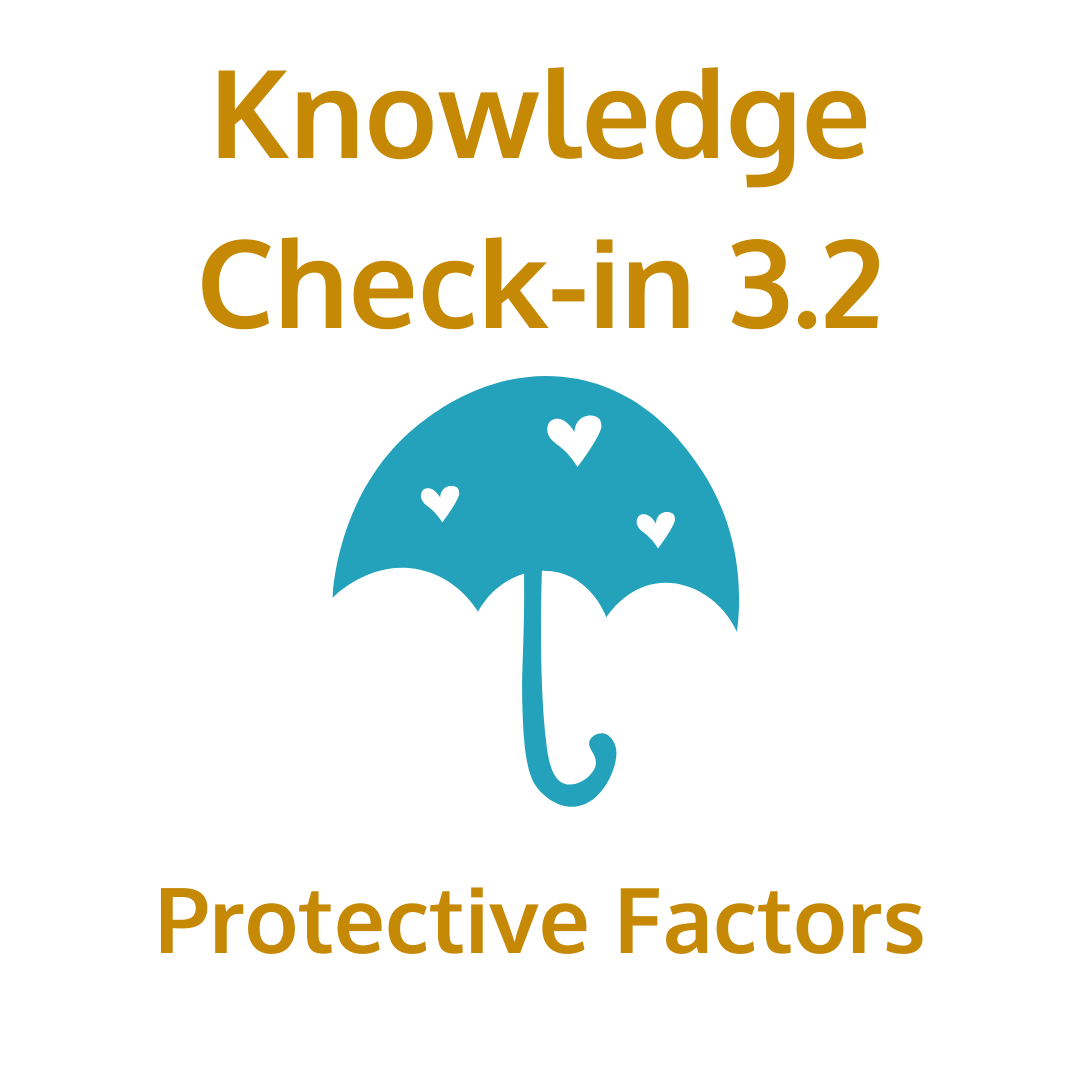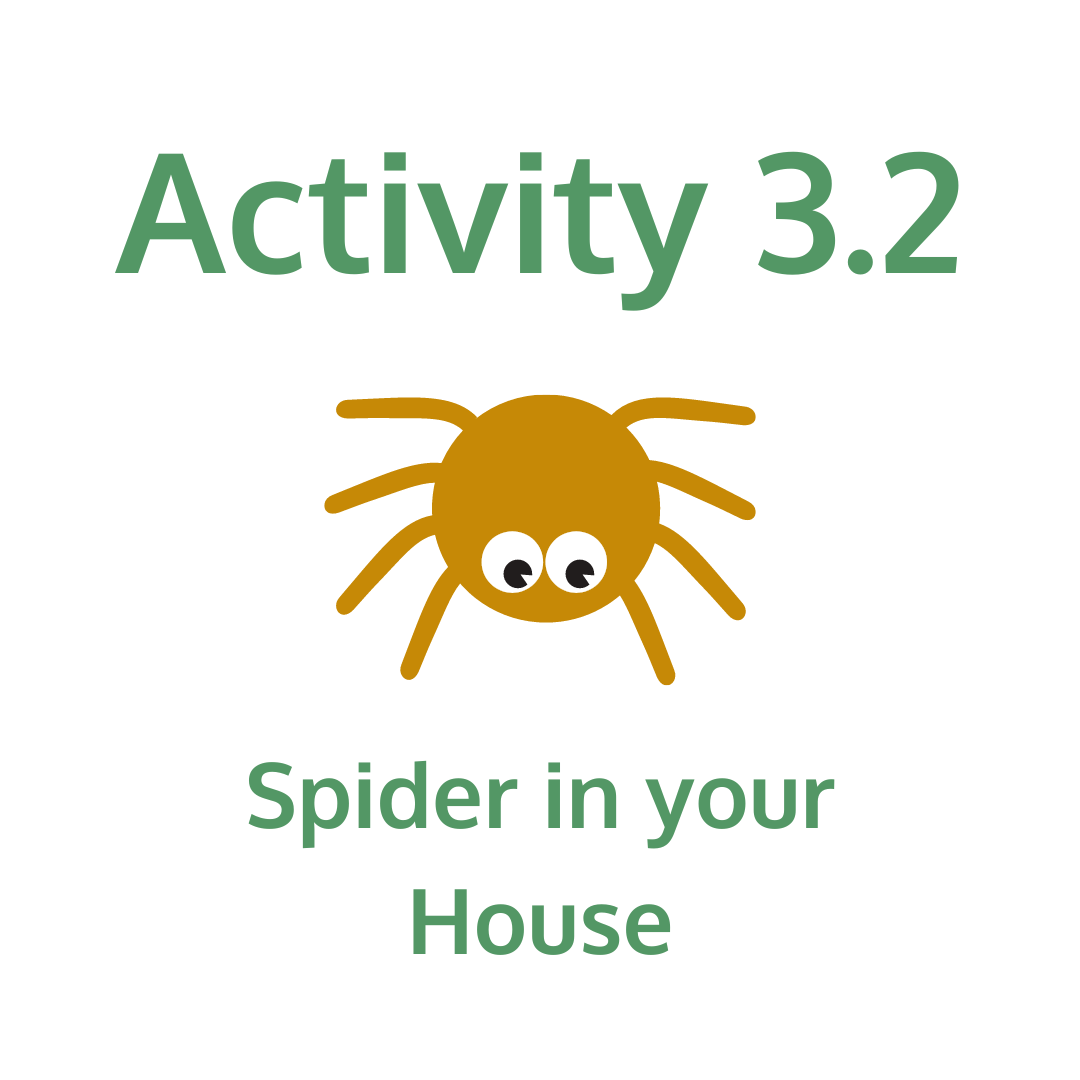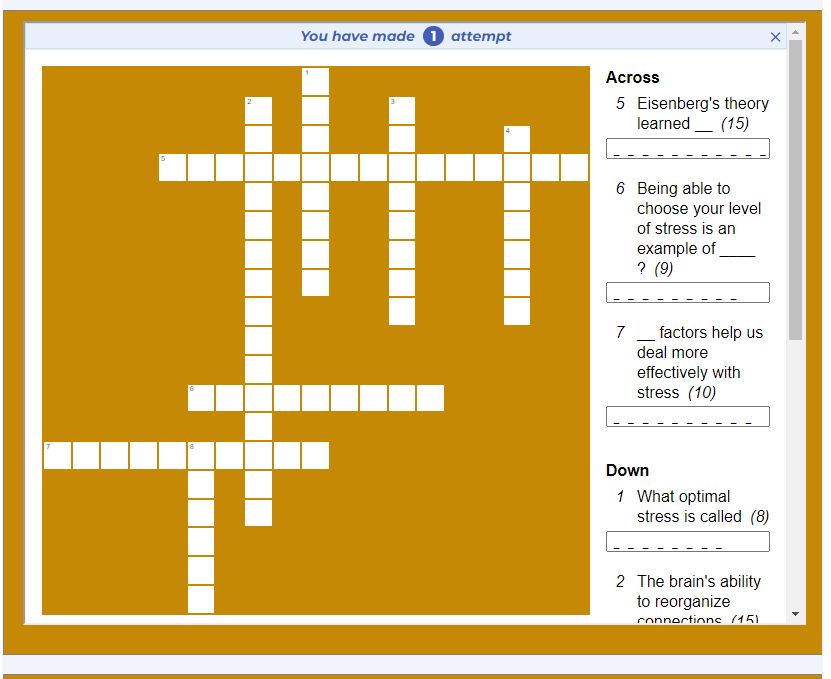Part 3: Resilience and stress
Define resilience and describe its relationship with stress and the stress response.
Estimated time to complete: 2 hours

Lesson 3.1: Introduction to resilience
4 mins
Activity 3.1: Dealing with stress, then and now
15 mins
In this activity, you will be presented with different scenarios relating to social, personal, and academic stressors. You will be asked to choose one from each category that you have faced in the past and write about how you responded to it.
Reflection 3.1: How does response to a recurring stressor change
5 mins
Typically, we become better at coping with moderate stressors we face over and over. Why do you think that is?
Podcast 3.1: Don’t Call Me Resilient – Episode 10
30 mins
In this episode of Don’t Call Me Resilient Vinita is joined by experts in discrimination and technology to discuss the “creeping culture of surveillance” and how it has serious implications for our most vulnerable populations.
Yuan Stevens is the Policy Lead on Technology, Cybersecurity and Democracy at the Ryerson Leadership Lab whose work examines the impacts of technology on vulnerable populations in Canada, the U.S. and Germany. Wendy Hui Kyong Chun is the Canada 150 Research Chair in New Media at Simon Fraser University and she leads the Digital Democracies Institute there. She’s the author of several books, including Discriminating Data.
This episode highlights some of the issues explored in this part of the module, particularly the ideas of privilege and the inability of certain people to choose their stress in moderate, tolerable levels that promote their growth. As new technologies emerge and continue to evolve, these groups are increasingly marginalized and exposed to oppression in their daily lives, which negatively impacts resilience.
Once you have finished listening to this podcast episode, don’t forget to take the quiz to check your understanding of the discussed content.
Activity 3.2: Spider in your house
2 mins
Let’s say you’re afraid of spiders… As you get home from a long day at school, you set your bags down and head to the kitchen when you notice a spider on your kitchen counter. He’s bigger than you’d like for him to be…
Reflection 3.2: Active and avoidant copings
5 mins
Podcast 3.2: Don’t Call me Resilient – Episode 15
25 mins
In this episode of Don’t Call Me Resilient, Vinita is joined by Natasha Bakht, an award-winning legal scholar who has spent the past five years researching the rise in anti-Muslim attitudes in North America. She is a professor in the Faculty of Law at the University of Ottawa and the author ofIn Your Face: Law, Justice, and Niqab Wearing Women in Canada.
In this episode, the idealized version of Canada being a kind and accepting society is challenged, highlighting laws that worsen Islamophobia and the truth about the prevalence of targeted attacks and hate crimes against Muslim Canadians.
This again underscores the idea of privilege giving people different opportunities and experiences despite living in the same communities, even ones people don’t necessarily view as oppressive. The anti-Muslim sentiment in Canada is real and results in entire communities living in states of chronic stress, rather than having the ability to choose their stress in moderate, tolerable levels that would promote their growth.
Once you have finished listening to this podcast episode, don’t forget to take the quiz to check your understanding of the discussed content.







